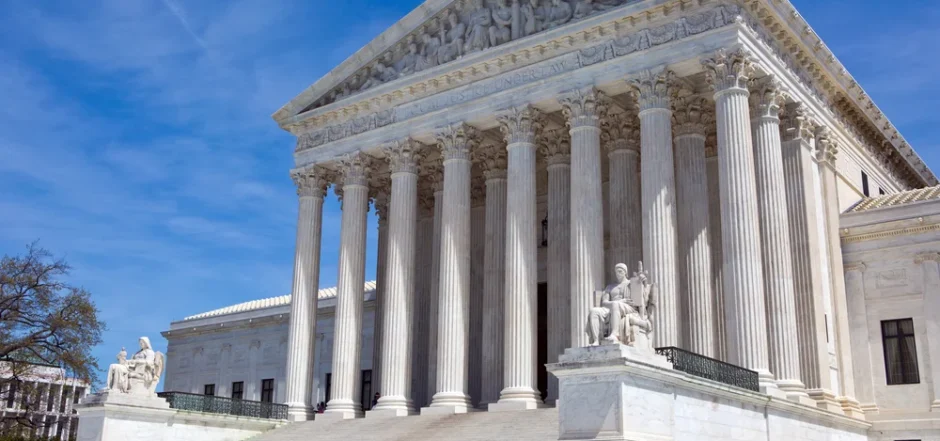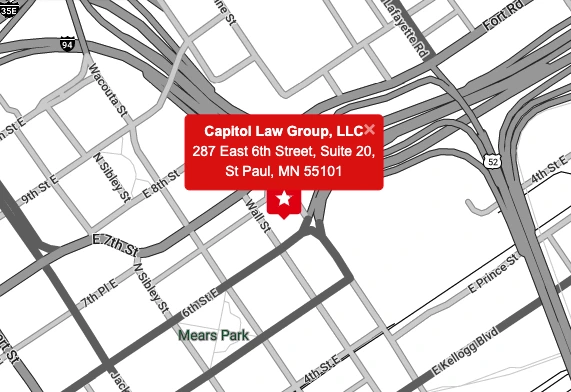Supreme Court Limits Forfeiture Laws

In a unanimous decision, the United States Supreme Court applied the Eighth Amendment’s prohibition against excessive fines to Minnesota and other states. The ruling sharply limits the practice which critics call “policing for profit.”
Timbs v. Indiana concerned the plight of Tyson Timbs. Prosecutors alleged that he sold about $400 worth of heroin to an undercover officer. After his arrest, officials seized his $42,000 Land Rover. The vehicle had little connection to the crime, except for transportation to and from the alleged sale scene. A trial judge found the forfeiture was clearly excessive, especially in light of the other punishments, including fines and a year of house arrest, that Mr. Timbs endured. But an appeals court threw out that ruling on a technicality. At that point, the Supreme Court hadneverr applied the “excessive fines” provision to the states. It only applied to the federal government.
This ruling changed the legal landscape. Writing for the majority, Associate Justice Ruth Bader Ginsburg said that the Bill of Rights primarily protected individual liberty instead of limiting the federal government’s power. From that perspective, she observed, the forfeiture was clearly excessive. “Protection against excessive fines has been a constant shield throughout Anglo-American history for good reason: Such fines undermine other liberties,” she added.
Another very good sign in this case is that Justice Ginsburg, who has been in poor health recently, presented the opinion in a Supreme Court session.
A St. Paul Criminal Defense Attorney Examines Minnesota’s Forfeiture Laws
In the early 2000s, Minnesota had expansive forfeiture rules. Police officers could seize, and sell, pretty much any property which they believe might have been involved in a crime. That included not only motor vehicles but also real property, cash, cell phones, computers, and pretty much any other tangible property.
But some scandals around 2010, most notably the 2009 Metro Gang Strike Force affair, prompted lawmakers to sharply limit Minnesota’s forfeiture laws. The new law said that, for the most part, forfeited property could only be sold or kept after a civil court proceeding.
But lawmakers left a loophole. According to the State Auditor, over 95 percent of the forfeitures in Minnesota are administrative forfeitures. Under the law, police officers must give notice of the seizure, but unless the owner successfully challenges the forfeiture in court, the temporary seizure becomes permanent. These challenges involve, at a minimum, filing the right paperwork, paying the filing fee, and hiring a St. Paul criminal defense attorney.
Most administrative forfeitures involve drug cases. The law gives police officers broad seizure powers in these cases. Some common items include:
- Cash or any other valuable property found near the contraband,
- Records of drug transactions (i.e. laptops or cellphones),
- Vehicles and other conveyance device connected to the drugs, and
- Any firearms on the premises, whether or not they are connected to the drugs.
The forfeiting agency usually sends notice to the owner’s address of record on a drivers’ license. In many cases, that address is incorrect. But under the law, that’s not the forfeiting agency’s problem. On a related note, the law does not distinguish between felony or misdemeanor drug cases, at least for the most part.
Other administrative forfeitures concern drive-by shootings. This awful-sounding offense basically includes any discharge of a firearm in the general direction of another person. In these cases, it is even easier for police officers to seize the property, and even more difficult for owners to retrieve it.
The forfeiture law also includes the summary forfeiture loophole. It applies to guns, cars, cellphone cloning equipment, and a few other items directly connected to criminal activity.
What Happens When the State Seizes My Stuff?
Most civil cases, including forfeiture cases, settle out of court. In this context, this settlement is called a buy-back. The owner and the prosecutor negotiate a buy-back price so the agency releases the forfeited property. Depending on the type and condition of the property, as well as the strength of the evidence, the buy-back figure could only be pennies on the dollar.
Other owners chose to waive their rights and let the law enforcement agency keep the forfeited property. For example, it often is not worth the bother and expense of filing a lawsuit to retrieve a two-year-old cellphone.
If the matter proceeds to trial, the state must prove that the property was actually used in the commission of a crime. Since the venue is civil court, the state only needs to establish facts by a preponderance of the evidence (more likely than not).
Additionally, in light of Timbs v. Indiana, the forfeiture must not be grossly disproportionate to the type of offense. Minnesota lawmakers will probably pass laws on this point at a later date.
Count on Experienced Lawyers
The Supreme Court may have just permanently ended policing for profit. For a free consultation with an experienced St. Paul criminal defense attorney, contact Capitol City Law Group, LLC. We routinely handle matters in Ramsey County and nearby jurisdictions.




